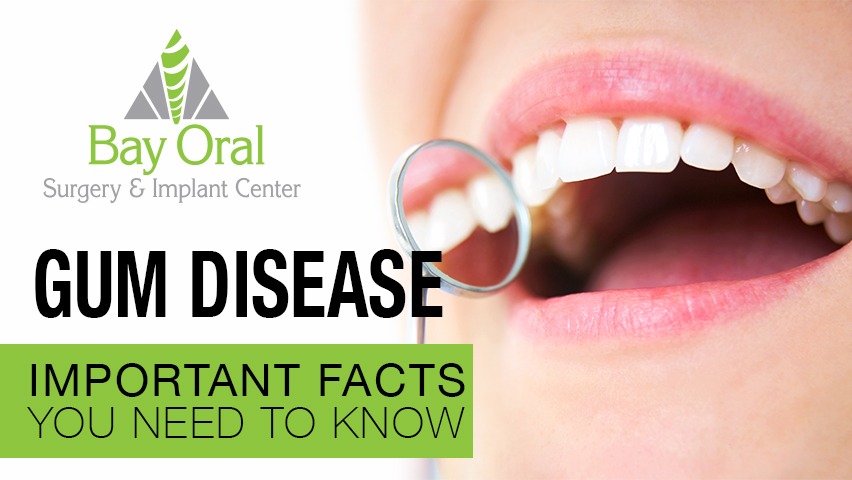
According to findings from the Centers for Disease Control and Prevention (CDC), one out of every two Americans aged 30 and older has periodontal disease, also known as gum disease. This means that approximately 64.7 million Americans are affected, so it’s now more important than ever to understand the facts behind this growing epidemic, the causes & risk factors, and how to treat it.
What is Gum Disease?
Gum disease is an inflammation of the gums that can progress to affect the bone that surrounds and supports your teeth. The two most common types are gingivitis and periodontitis. The mildest form of this disease is gingivitis, which causes the gums to become swollen, red, and bleed easily. If gingivitis is left untreated, it can advance to periodontitis. Periodontitis is a serious gum infection that damages the soft tissue and destroys the bone supporting your teeth. Gums begin to separate from your teeth and form pockets that become infected, which can lead to tooth loss.
Causes & Risk Factors
The main cause of periodontal disease is improper oral hygiene, but other factors affect the health of your gums as well. Below are some of the most common risk factors:
- Tobacco – Smoking cigarettes or chewing tobacco prevents the gum tissue from being able to heal properly.
- Alcohol – Consuming alcohol regularly tends to increase plaque levels on your teeth due to the sugar content in alcohol. Additionally, alcohol causes dehydration and dry mouth, which reduces saliva flow and increases the risk of tooth decay.
- Diabetes – Diabetes causes blood vessels to thicken, slowing the flow of nutrients and the removal of harmful wastes, which weakens the resistance of gum and bone tissue to infection. When diabetes is poorly controlled, high glucose levels in your saliva may help germs grow and set the stage for gum issues.
- Nutrition – Diets that are high in sugar and carbohydrates will increase the formation of plaque, and a deficiency of important nutrients such as vitamin C will impair healing.
- Aging – Studies show that the senior population has the highest rate of periodontal disease, with 70% of Americans over the age of 70 experiencing periodontitis.
- Stress – Many studies have been conducted that link stress as a factor in fighting off infections such as periodontal disease.
- Teeth Clenching & Grinding – Clenching or grinding your teeth can put excess force on the supporting tissues of the teeth and could speed up the rate at which these periodontal tissues are destroyed.
- Puberty & Hormones – Women have an increased sensitivity to oral health problems because of the unique hormonal changes they experience. These hormonal changes not only affect the blood supply to the gum tissue, but also the body’s response to the toxins that result from plaque build up.
- Medications – Many medications can cause a reduction in saliva, which is necessary to help prevent infection and tooth decay. Some medications for allergies, high blood pressure, and depression are known to reduce saliva flow.
Gum Disease Treatment
Treatment options will vary depending on the symptoms and stage of your infection. The goal is to control your infection and consult your dentist for the right treatment plan for you. To learn more about gum disease and the treatment options available to you, consult with your dentist or find a dentist near you on our website.
